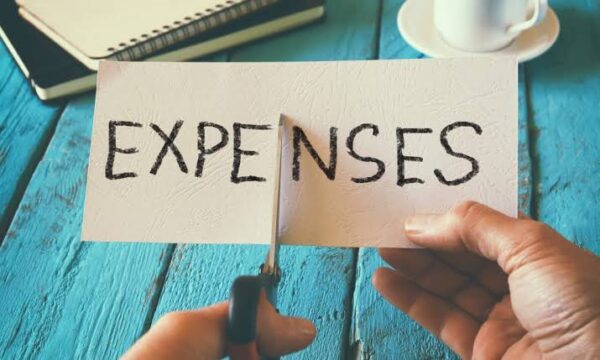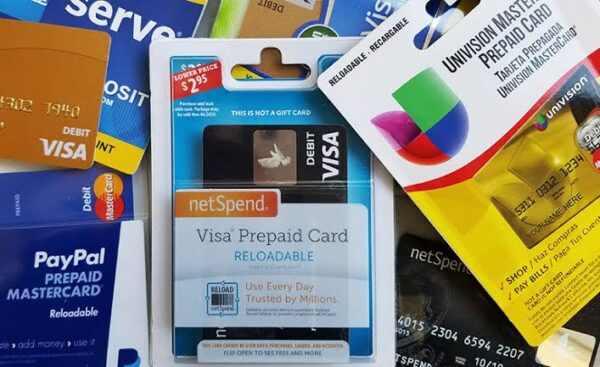21 Cheapest Ways to Live to Cut Your Living Expenses

21 Cheapest Ways to Cut Your Living Expenses
There are cheap ways for you to cut your living expenses without having to starve or miss out on the good things in life. So don't go about piling up debts when you can easily live a decent life by doing the bare minimum.
Like many Americans, if you frequently have too much money at the end of the month, it's natural to consider acquiring a better job or starting a side hustle.
That's not to say there's anything wrong with it. However, the real issue may not be how much you earn but how much you spend. You may need to cut costs, possibly dramatically.
What Exactly Are Living Expenses
Living expenses are the regular costs that people have to pay to meet their basic needs and maintain a certain level of living.
Most of the time, essentials like living, utilities (electricity, water, gas), groceries, transportation, healthcare, insurance, and personal care products are included in these costs.
Other usual costs of living include communication services (Internet, phone), household supplies, clothing, education costs, and entertainment.
Depending on location, lifestyle choices, family size, and personal preferences, living costs can differ for each person.
They are the costs you must pay daily to stay alive and live a happy, useful life.
To budget, plan your finances, and live a financially healthy life, you need to know and keep track of your living costs.
Good Read: 10 Ways to Save Money on Groceries
What Are the Examples of Your Typical Living Expenses?
Examples of our daily expenses include:
- Rent or mortgage payments
- Utilities (electricity, water, gas)
- Groceries
- Transportation costs
- Health insurance premiums
- Dining out
- Phone bills
- Internet service
- Clothing and shoes
- Entertainment expenses
- Personal care products
- Car payments or lease
- Insurance premiums (auto, home, etc.)
- Student loan payments
- Gym or fitness memberships
- Childcare expenses
- Pet care expenses
- Home maintenance costs
- Property taxes
- Retirement savings contributions
Average American daily living expenses include:
- Morning coffee or tea
- Breakfast items
- Lunch at a restaurant or cafeteria
- Snacks
- Public transportation fares
- Fuel for commuting
- Groceries
- Personal care products
- Household supplies
- Dining out for dinner
- Entertainment activities (movies, concerts, etc.)
- Subscriptions (streaming services, magazines, etc.)
- Online shopping purchases
- Gym or fitness memberships
- Parking fees
- Toll fees
- Take-out or delivery meals
- Pet supplies
- Home utilities (electricity, water, internet, etc.)
- Miscellaneous expenses (tips, impulse buys, etc.)
Are Living Expenses Different from Monthly or Daily Expenses?

Costs of living include both weekly and daily expenses.
They are the costs that must be paid on a regular basis to meet basic wants and keep a certain standard of living.
Most monthly bills, like rent or mortgage payments, energy bills, insurance premiums, and loan payments, come due every month.
These costs are paid every month and make up a big part of a person's general living costs.
On the other hand, daily expenses are the smaller costs you must pay daily for things like food, transportation, meals, and personal care items.
These costs are usually small, but they add up over time and become a part of the total cost of living.
Even though monthly costs make up a big part of living costs, daily expenses also play a role in a person's total financial health.
For a healthy budget and financial stability, keeping track of and managing monthly and daily costs is important.
How Cutting Your Living Expenses Helps You Focus on Your Financial Goals
Cutting your living costs can help you reach your financial goals in more than one way.
First, cutting back on costs gives you more money in your budget that you can use for savings or to pay off debts.
You can save more money each month by cutting out useless spending and being more aware of how much you spend.
This money can increase over time and help you reach your financial goals. Additionally, cutting living costs helps make a more financially stable way of life.
By living within your means and spending less than you earn, you can avoid getting too much debt and lower financial stress.
This gives you a better financial base and more stability to work toward your long-term goals, like saving for retirement, buying a home, or paying for your kids' college.
Lowering your living expenses is definitely one of the steps to achieving financial freedom and giving you power over your money.
You can put money toward your interests and financial goals by keeping track of your expenses well.
Whether you want to save for a down payment on a house, start your own business, or take a dream trip, cutting expenses will give you more money to spend.
This will help you reach your goals and live a happier, more financially secure life.
Overall, lowering your living expenses allows you to save more money, pay down your debt, and have more control over your financial future.
It sets you up for long-term financial success by helping you build a strong base and put your money toward your most important goals.
Can Making a Budget Help Me Cut My Living Expenses?
Making tiny budget changes may have little impact on your financial situation. However, you might be amazed at how many advantages there are.
First, cutting back on spending allows you to put more money toward debt repayment. And you know how crucial this is if you've been battling to make a dent in your debt level.
And the faster you pay off your loan, the less interest you'll have to pay.
Cultivating a budgeting mindset and cutting down on your expenditure can also help you achieve your other financial goals more quickly.
Extra money in your budget can make a big difference when it comes to saving for a vacation, paying a down payment on a property, or getting started with investing for the first time.
Furthermore, every bit of savings counts if you have a modest salary.
To assist you in your goal of living a better life on low budget, this article looks at the cheapest ways you can lower your cost of living.
21 Cheapest Ways to Cut Living Expenses
1. Get A Prepaid Card

Getting a prepaid card is undoubtedly one of the best ways to avoid debts and unnecessary spending.
With a prepaid card, you can budget the amount of money you want to spend in a month and have a full report of your spending anytime you want to avoid irregularities.
And just so you know, a prepaid card is a card that enables you to spend the exact amount of money you load into it hence restricting your spending.
A prepaid card doesn't allow you to spend beyond your fund or create debts.
Another benefit of a prepaid card is its lower fee charge for each transaction, unlike banks or credit cards.
2. Take Public Transport or Share Rides
Owning a private car may not be the best decision to make when considering cutting your living expenses.
This is because fuel, maintenance, and parking costs are enough to cover other important living expenses.
So to cut down on your cost of transportation, it's best to consider taking public transport.
Aside from being inexpensive and reliable, public transport also offers you a way to cut down your budget to the lowest through its discount pass, season deals, and free bus service deals.
You can also save on your transportation expenses by sharing rides with neighbors or friends.
3. Bulk Buy Non-Perishable Items

Plan ahead of time and buy in quantity! This is a no-brainer if you know you regularly use and consume particular goods!
Paper towels, olive oil, happy wrap, laundry detergent, cleaning supplies, dishwashing tablets, and more are all higher-priced supermarket items.
The above items have a long shelf-life and can greatly lower your yearly shopping expenses if purchased in bulk. You can also take advantage of different ways to save money on groceries.
However, a word of caution: always be selective when purchasing bulk and only buy things you know will be consumed before the expiration date.
Rice and oats, cereal, muesli bars, vegemite, peanut butter, tuna, flour, and sugar may all seem like great things to keep in your pantry.
However, before you start stockpiling them, consider your overall household frequency and consumption.
Okay, you probably think this will cost me extra at the register! True, but the money you'll save in the long run is well worth it!
Consider Bulk-buying Pet Food
It's a reasonably priced item with a lengthy shelf life, and if you own a pet, you know it'll be consumed because your pet has to eat.
A 4kg bag of dog food costs $59.98 at a local pet store, while a 15kg bag costs $154.80. If your dog goes through a 4kg bag every two weeks, you'll need to buy 25 bags each year, which will cost you $1,562.48.
If you buy a 15kg bag, you'll only need 7 bags per year, saving you $1,020.60 and $538.88 per year on dog food compared to buying the smaller bag.
Consider how much you could save per year if you did this with all of your high-consumption groceries!
Bulk buying is undoubtedly a way to save extra money because things bought in bulk are cheaper. But it can come with a few challenges if not done properly.
Here are some bulk-buying tips to help you save some cash while cutting down your living expenses:-
- Buy the right things in bulk and avoid buying perishable items in bulk.
- If possible, split the cost of a bulk item with friends.
- Don't overstock an item. It may end up getting spoilt.
- Items like toiletries, beverages, and rice can be bought in bulk.
- Avoid bulk buying items, snacks, fresh produce, and egg.
- Unnecessary trips to stores can cause impulse buying, so you should buy things in stock and prevent the need to go shopping.
4. Create a Food Budget
The truth is, healthy eating isn't expensive. You just don't know how to plan your food budget. You can eat and save healthily if you have a good food budget.
Having a good food budget doesn't only help you erase unwanted expenses; it also enables you to create extra cash that can be saved.
Here are some tips to help you create a good food budget:-
- Find out the prices of food items before going to stores.
- Make a list of things to buy and adhere strictly to it.
- Check out for coupons.
- Know the store layout and avoid going to sections that can encourage you to spend.
- Buy items in season
- Buy the Right Things in Bulk
You must have heard that buying foods and household products in bulk can help you cut your expenses; it's true if you buy the right things in bulk.
5. Use Cash During Payment

Paying money in cash may seem inconvenient, but it's a smart way to have a handle on your expenses.
If you're curious about how cash payment can help you keep your expenses in check, read the facts below.
When you make payments for things in cash, you become conscious of your financial status, and then you become less prone to impulse spending.
This is because the process of watching your money being taken and exchanged for something will set you into reality.
Paying for things in cash helps you keep good track of spending. It enables you to know how much you've spent and how you should have spent.
So to begin your journey of cash payment, simply redraw a budgeted amount of money and stick to spending only that amount for a week or month.
6. Rent the Right Apartment
The apartment you choose to rent greatly impacts your living expenses, so when choosing a place to rent, it's best to consider certain factors, as mentioned below.
Location:- to avoid unnecessary living expenses, you need to rent an apartment that makes it easy for you to save.
In other words, the place you stay has to be close to your working area and grocery store to enable you to cut down on transport costs.
The Cost of Rent:- if your monthly rent eats up a good amount of your salary, it's time you consider changing where you stay. There are also legit ways to live rent-free you can explore to cut your living expenses.
How Often will the rent Increase and by How Much?:-
When renting a place, be clear on how often the rents will be increased. This will prevent you from unnecessary expenses on rent.
Cost of Parking:- the cost of rent is enough to have you living on a tight budget, so you don't need to rent a place with high parking costs.
7. Cut Costs on Home Utilities

Whether you rent or buy, basic household expenses can consume a significant chunk of your budget.
However, increasing your home's energy efficiency can reduce prices and save you money on household expenses.
There are ways to save money on utilities, especially during winter that you can start. Some of the helpful hints are:
1. Set your thermostat. You can save money by setting your thermostat to use less heat and air conditioning while you are away.
2. Change your light bulbs. It would be best if you thought about installing energy-saving light bulbs. They not only use less energy than regular bulbs, but they also last longer.
3. Seal and insulate your home. According to Energy Star, the average home has so many leaks that it's equivalent to keeping a window open every day of the year.
Insulating your home and sealing windows and doors can dramatically reduce your home utility expenditures.
4. Improve your water efficiency. Repairing leaks and installing water-saving gadgets can save you up to $350 per year.
5. Turn down the heat on your water heater. Lowering the temperature of your water heater from 140 to 120 degrees Fahrenheit will help you save up to 22% on your annual power bill.
6. Consider your choices for relief. If you're having trouble paying your utility bills, you might be eligible for assistance with part of your home energy costs.
Electricity bills can eat you up without your knowledge. Hence it's high time you reconsider how you use your electricity.
Reducing your electricity bill by 25% is possible. You just have to follow these simple tips.
8. Share Subscription Bills with Friends
Cutting down on your living expenses doesn't demand you unsubscribe from things that keep you happy.
If Netflix is your mini-comfort zone, you can enjoy it to the fullest without having to bear the expense brunt of it.
This is possible by sharing your subscription bills with friends or family. Streaming services, cell phone plans, car insurance, and file storage subscription bills can be shared with family.
So before you subscribe to a service, find out the terms and conditions to see if there's a family subscription plan.
9. Live with a Friend and Share the Rent Bills
Housing is certainly one of your largest expenses; those earning less than $50,000 per year spend 36.6% or more of their income on housing.
This is more than the 30% rule of thumb financial experts advocate.
Lenders prefer to see someone spend roughly 28% of their pre-tax income on housing when reviewing mortgage applications.
Reducing housing costs may appear to be a nuclear option, but it is something to think about, and there are ways to downsize that may be easier than you think.
You probably aren't the only one amongst your friends who wants to cut down on living expenses.
If there's a friend you're close to who won't mind sharing a room with you, you both can split rent bills.
Doing this will cut your rent bills by half and cause your utility bills and other housing expenses to be split into two.
10. Cancel Your Credit Card

Having a credit card may be convenient for the fact that it allows you easy access to credits, but it is for this exact reason that you should consider canceling it.
A credit card makes spending too easy, and as someone aiming to cut down on living expenses, you should avoid anything that will trigger impulse spending.
Having a credit card makes you vulnerable to challenges such as; a high-interest rate, credit damage, high annual fees, and overspending. Besides, canceling your credit card may be one way to help you clean up bad credit.
11. Switch to a Cheaper Cell Phone Service
Your expenses on cell phone services may seem like they do not affect your overall living, but you would be surprised to discover what happens when you cut them down by 50%.
Also, your cell phone service may be costlier than you think, so you can also look for ways to get cheap cell phone services.
https://paypant.com/21-cheapest-ways-to-live-to-cut-your-living-expenses/
Comments
Post a Comment